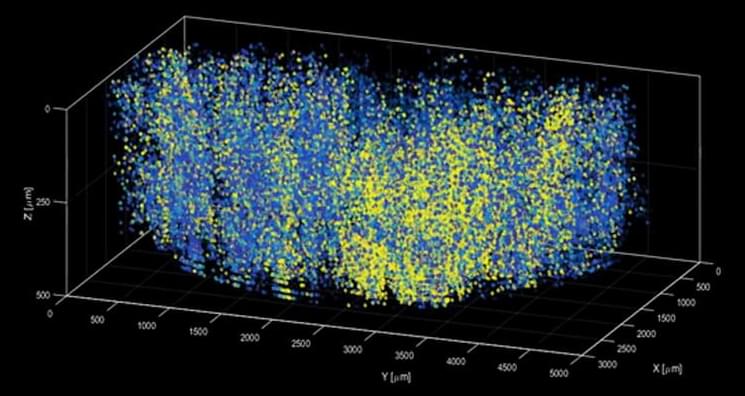A new method – which has been dubbed “light beads microscopy” – is described in the journal Nature. This offers a creative solution that pushes the limits of imaging speed and is limited only by the physical nature of fluorescence itself. It eliminates the “deadtime” between sequential laser pulses when no neuroactivity is recorded and at the same time the need for scanning.
The technique breaks one strong pulse into 30 smaller sub-pulses, each at a different strength, which dive into 30 different depths of scattering but induce the same amount of fluorescence at each depth. This is accomplished with a cavity of mirrors that staggers the firing of each pulse in time and ensures that they can all reach their target depths via a single microscope focusing lens. Using this approach, the only limit to the rate at which samples can be recorded is the time it takes the fluorescent tags to flare. That means broad swathes of the brain can be recorded within the same time it would take a conventional two-photon microscope to capture a much smaller network of brain cells.
Scientists at Rockefeller University, New York, integrated their new system into a microscopy platform with access to a large brain volume. This enabled the recording of activity in more than a million neurons across the entire cortex of a mouse brain for the first time.
